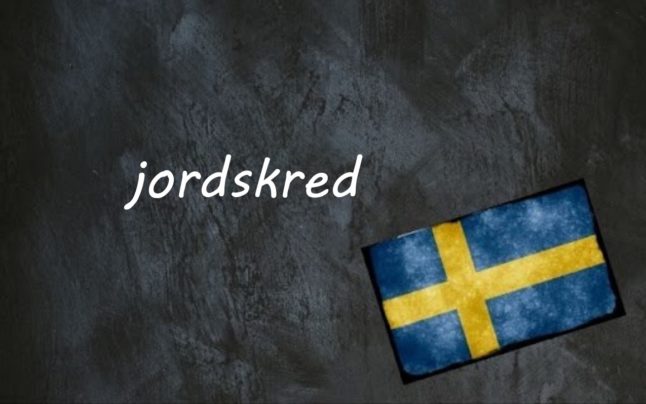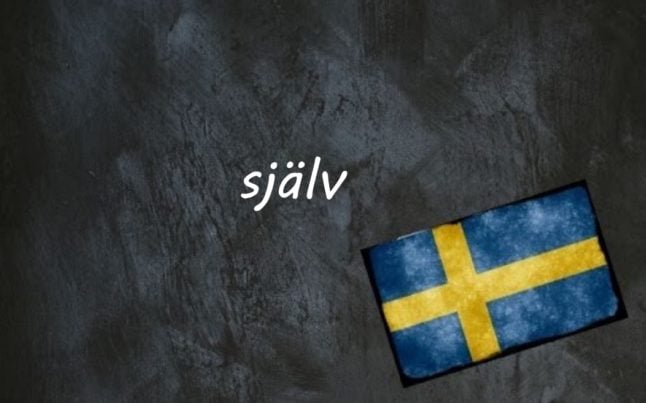Let’s start with the first part of the word: jord. This originally comes from the Early Old Swedish iorþ, where the þ is pronounced ‘th’. It has the same root as the English word for jord, earth.
Like in English, it can be used both to mean the planet Earth (jorden) or earth as in soil or land.
It’s also used in a number of phrases, with some examples being gå under jorden (to go underground, in the sense of hiding from police or other authorities), moder jord (Mother Earth), komma ner på jorden (to come down to earth, in the sense of being brought back to reality), and ha fötterna på jorden (to be practical).
The second part of the word, skred, is the past tense of skrida, has a couple of different meanings.
Att skrida fram usually means that something is slowly moving forward, such as a procession, for example. In Danish and Norwegian, the word for progress is fremskridt or framskritt, for this reason (the Swedish word is framsteg).
You may also see it in the phrase att skrida till verket: to get to work or to spring into action.
That’s not the meaning used in jordskred, however. Here, skred means to slide or skate, a meaning you can also see in the Swedish word for ice skates, skridskor (literally: skate shoes). If you wanted to say you were ice skating, though, you would say jag åker skridskor, rather than jag skrider.
The word skred can also be used on its own to describe some sort of mass moving quickly (usually in the sense of a landslide), or in a compound word with another material, such as bergskred (literally: mountain slide, but better translated as rockslide) and snöskred (literally: snowslide, but better translated as an avalanche). You might also see the word lavin used instead of a snöskred.
In Swedish, as in English, you can use the word jordskred to refer to an exceptionally good result in an election or similar contest: this would be a jordskredsseger (landslide victory).
Etymologically, skrida comes from the Old Norse skriða, which is also the root of the English word scree, referring to small fragments of rock at the bottom of cliffs which have usually been formed through – you guessed it – rockslides.
Example sentences:
Ett jordskred inträffade på E6:an natten till lördag.
A landslide occurred on the E6 in the early hours of Saturday (natten till lördag could also mean Friday night).
Ronald Reagan vann en jordskredsseger i presidentvalet 1984.
Ronald Reagan won a landslide victory in the 1984 presidential election.
Don’t miss any of our Swedish words and expressions of the day by downloading our new app (available on Apple and Android) and then selecting the Swedish Word of the Day in your Notification options via the User button.



 Please whitelist us to continue reading.
Please whitelist us to continue reading.
Member comments